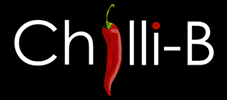I am writing this blog on the Consumer act not as a person with law as background, but as a retailer that is quite intrigued by the effect of the law on my business both upstream and downstream. You see, I might be a retailer, but looking upstream to my suppliers, I am also a consumer. As a relative small retailer, competing in some cases on very difficult and unfair grounds with the very large conglomerates, I have a vested interest in knowing what is going on. I have to protect my investment, that is our company Chilli-B. The new Consumer Act will have far reaching consequences in South Africa. It is going to reshuffle some old business activities of all companies. In some cases it will be compared with pre-“apartheid” ara and post of consumer exploitation. There are a lot of aspects that are covered by the new act, actually it is Act 68 of 2008 that I am discussing. I have not seend the new one bound for March 2011 which will be made effective retrospectively (I assume) in October 2011. I am not going to cover aspects that does not cover us directly such as Franchisor and Franchisee agreements, establishment of National Consumer Commissions etc. I will highlight the most important aspects that pertains directly to retail sales in our, Chilli-B’s, environment.
Companies engaging in direct marketing must take note when and what they are allowed to sell.
Let’s look at the first one that I quite like: The “Right to restrict unwanted direct marketing”. Finally there is a law to block South African companies to call you directly during the evening after hours to sell you a cell phone contract. No supplier (meaning a company that wants to sell you something) is allowed to contact you on the following times:
Section 5. For purposes of section 12(2) of the Act, the following are days, dates, public holidays or times of days when a supplier may not engage in any direct marketing directed to a consumer at home:
(a) Sundays or public holidays contemplated in the Public Holidays Act, 1994 (Act No. 36 of 1994);
(b) Saturdays before 09hOO and after 12hOO; and
(c) all other days between the hours of 19hOO and 08hOO the following day.
Unless you have given a supplier explicitly the right to call you outside these times, it is illegal for any company to call you with the purpose of direct marketing. The consumer has full right to refuse any direct marketing advances and it is within his right to set up mechanisms to block future advances by a supplier to direct marketing. I must say, I have not had any calls after hours since 2009, so a couple of companies gathered that cold calling does not work. Obviously international companies are not covered so we still get the odd Korean or Chinese Forex caller trying to convince us to invest in some off-shore crap. This part of the law is one of the more simpler ones to understand since it is quite straight forward. Don’t call me, I’ll call you :). Rest assured Chilli-B will not call you in the middle of the night 🙂

